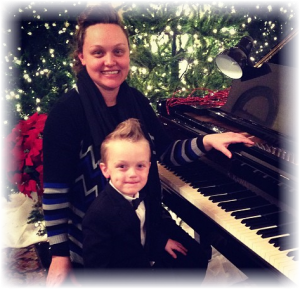by Stephanie Clark
When I first started teaching piano, my two boys were automatically my new students—most often taught against their will. At that time I taught all students pretty much the same way including my two boys
My boys are very different from each other and so are all my other students—-even though everyone is different, I was teaching everyone the same way.
Then I learned something that helped me tremendously, not only interacting with students but with people in general. Personality profiles or the “four temperament” models of human behavior. Everyone has a different personality type, children, musicians, co-workers, parents, everyone. It is important to note that one disposition is not better than the other—just different.
Outgoing: The individuals like to “go” and are constantly on themove, create excitement and take the “party” with them. They are fast-paced and energetic, usually positive and optimistic. They like to win and are involved in everything! They usually do not lack in self-confidence and sometimes bite off more than they can chew. But that’s ok, they’ll “hustle” and make up the difference.
Reserved: These individuals are “steady eddies” and may be the proverbial tortoise left in the dust. They usually end up crossing the finish line ahead, however, because they have a lot of patience and stamina to get the job done. They are usually reserved types and cautious and reluctant to get involved in too many activities. They prefer, rather, to look into a situation a little longer than jumping right in. They look below the surface.
Task oriented: These individuals enjoy doing things, making plans, working on projects, and find great pleasure in a job well-done. Sometimes they can be so focused on getting the job done that they can easily hurt someone’s feelings.
People oriented: These individuals like to interact with other people and they are more concerned with way people feel than simply accomplishing a task.
If you are a beginning piano teacher, you’ll find it helpful to KNOW YOUR STUDENTS! What do you want in a student?
It is important to remember that all your students are going to be different!
There’s an old saying
the teacher has not taught anything until the student has heard.
We hold the keys for our students’ success
so wouldn’t it make sense to adapt our teaching to their style?
Knowing your student can help reduce turnover on your part and frustration on the student’s part.
Do they have a piano or keyboard? This is very important! How old are they? They need an attention span of at least five solid minutes.


